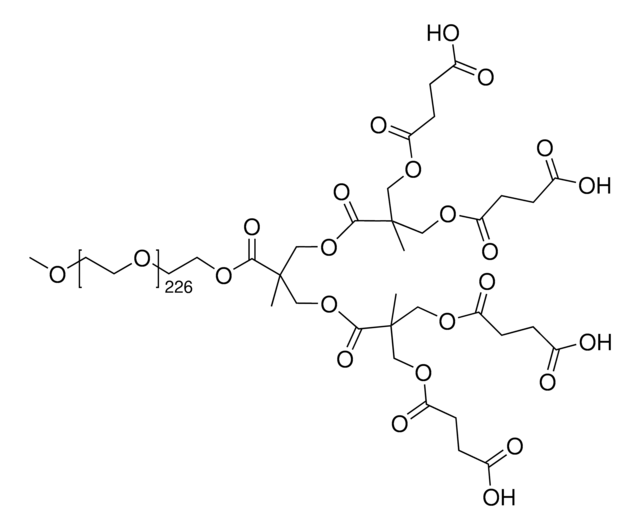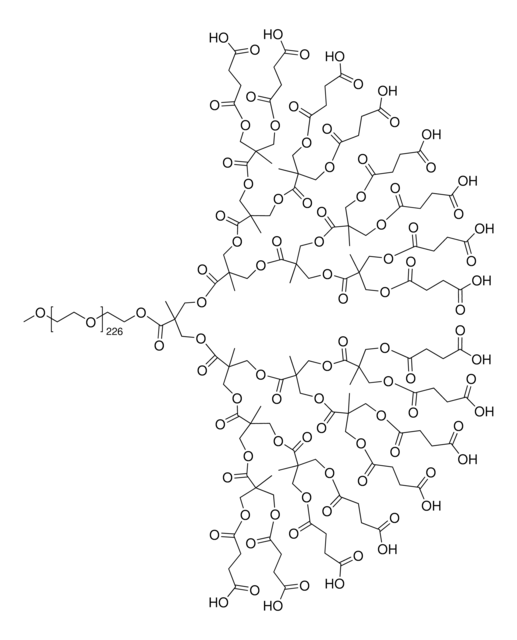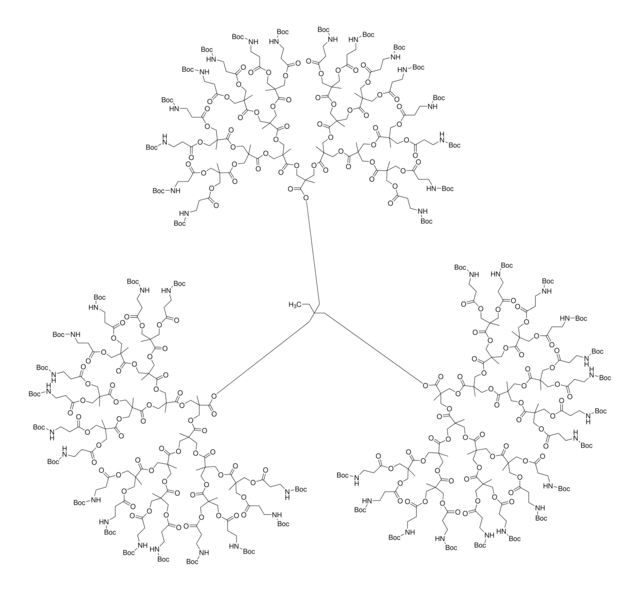901397
Poly(ethylene glycol) linear dendrimer
NHBoc terminated, PEG Mn 6000, generation 4
Synonyme(s) :
Dendron bifunctionalized PEG, PFD-G4-PEG6k-NHBoc, Polyethylene glycol
Se connecterpour consulter vos tarifs contractuels et ceux de votre entreprise/organisme
About This Item
Formule empirique (notation de Hill):
C678H1202N32O323
Poids moléculaire :
14970.82
Code UNSPSC :
51171641
Nomenclature NACRES :
NA.23
Produits recommandés
Niveau de qualité
Forme
solid
Poids mol.
PEG Mn 6000
Couleur
white to off-white
Température de stockage
−20°C
Description générale
- Polymer architecture: Dendron-functionalized PEG
- Generation: 4
- PEG Average Mn: 6,000
- End group functionality: Boc-protected amine
- No. surface groups: 32
- Calculated mol. wt.: 14970.98 g/mol
- Boc: tert-Butyloxycarbonyl
- Bis-MPA: 2,2-bis(hydroxymethyl)propionic acid
Application
Bis-MPA (or 2,2-bis(methylol)propionic acid) is an aliphatic, pro-chiral molecule comprised of two hydroxyls and one carboxylic group that has been used in the synthesis of many different types of polymers. Dendrons synthesized from bis-MPA are biodegradable and have low cytotoxicity, making them well suited for use in biological research applications. These materials have been used in many applications such as signal amplification in bioassays and in drug delivery applications. PEG-core dendrimers feature excellent solubility in water and a high degree of functionality per PEG chain, making them strong candidates for advanced drug delivery systems or as targeting vessels. Additionally, the terminal amine groups can readily be used in EDC or DCC coupling reactions (after Boc deprotection) with carbonyl-containing compounds, to yield highly functionalized materials for a variety of biomedical applications.
Code de la classe de stockage
11 - Combustible Solids
Classe de danger pour l'eau (WGK)
WGK 3
Point d'éclair (°F)
Not applicable
Point d'éclair (°C)
Not applicable
Faites votre choix parmi les versions les plus récentes :
Certificats d'analyse (COA)
Lot/Batch Number
Vous ne trouvez pas la bonne version ?
Si vous avez besoin d'une version particulière, vous pouvez rechercher un certificat spécifique par le numéro de lot.
Déjà en possession de ce produit ?
Retrouvez la documentation relative aux produits que vous avez récemment achetés dans la Bibliothèque de documents.
Yanjun Fu et al.
Bioconjugate chemistry, 17(4), 1043-1056 (2006-07-20)
The purpose of this study was to design, synthesize, and initially characterize a representative set of novel constructs for large-molecular radiographic/computed tomography (CT) contrast agents, intended for a primarily intravascular distribution. A new assembly of well-known and biocompatible components consists
Anna Carlmark et al.
Chemical Society reviews, 42(13), 5858-5879 (2013-05-01)
Dendritic polymers are highly branched, globular architectures with multiple representations of functional groups. These nanoscale organic frameworks continue to fascinate researchers worldwide and are today under intensive investigation in application-driven research. A large number of potential application areas have been
Notre équipe de scientifiques dispose d'une expérience dans tous les secteurs de la recherche, notamment en sciences de la vie, science des matériaux, synthèse chimique, chromatographie, analyse et dans de nombreux autres domaines..
Contacter notre Service technique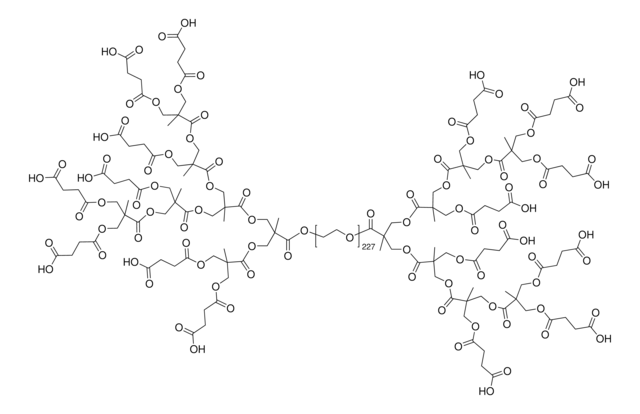
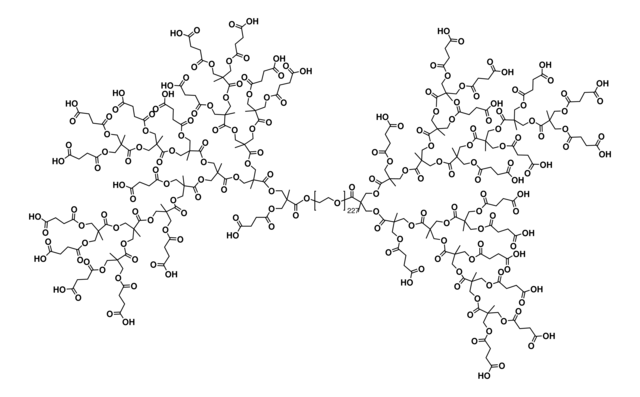
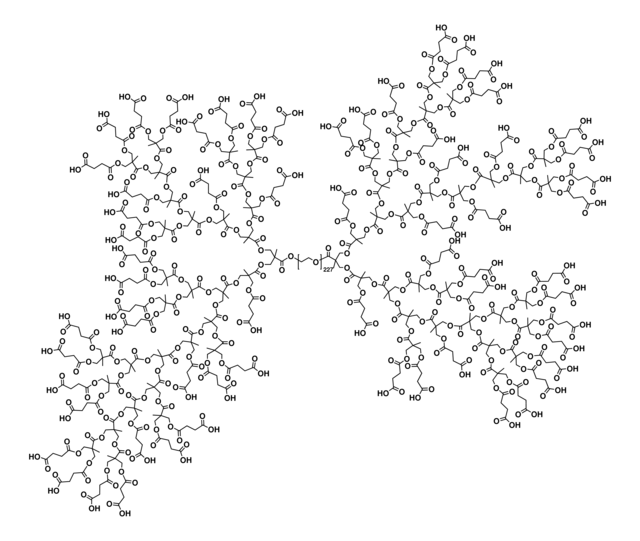
![4-(1′,5′-Dihydro-1′-methyl-2′H-[5,6]fullereno-C60-Ih-[1,9-c]pyrrol-2′-yl)benzoic acid](/deepweb/assets/sigmaaldrich/product/structures/417/736/540e4dd8-0c87-48e5-8307-3befb16498ba/640/540e4dd8-0c87-48e5-8307-3befb16498ba.png)
